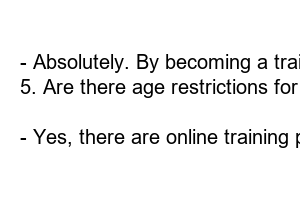아동학대 신고의무자 교육
Child Abuse Reporter Training: Protecting the Innocence
Child abuse is a heart-wrenching issue that affects millions of children worldwide. It is our duty as responsible individuals to help prevent and put an end to this horrific crime. One way to contribute to this cause is by becoming a child abuse reporter. Providing a safe and nurturing environment for children is crucial, and proper training ensures that the reports are accurate and action can be taken promptly.
Why is Child Abuse Reporter Training Important?
Child Abuse Reporter Training is essential to equip individuals with the skills and knowledge necessary to identify and report signs of abuse accurately. This training empowers participants to become a crucial link in the chain, ensuring that authorities can intervene and protect the child promptly.
What Does Child Abuse Reporter Training Include?
1. Recognizing Different Types of Abuse: In this training, participants learn to identify various forms of abuse, such as physical, emotional, sexual, and neglect. Understanding the signs and symptoms is crucial in reporting accurately.
2. Documentation and Reporting: Proper documentation of findings and effective reporting techniques are key components of child abuse training. Participants learn how to gather information, write comprehensive reports, and engage with relevant authorities.
3. Legal and Ethical Considerations: Child abuse reporter training includes an in-depth examination of the legal and ethical obligations of a reporter. Understanding confidentiality, privacy laws, and one’s responsibilities in reporting is essential for effective intervention.
4. Interview Techniques: Effective interviewing skills are necessary to obtain accurate information from victims and witnesses. This training provides techniques to create a safe space, establish trust, and gather vital information while minimizing further trauma.
5. Child Protection Policies: Understanding and implementing child protection policies in various settings, such as schools, healthcare facilities, and community organizations, is crucial in preventing abuse. Training equips participants with the tools to enforce these policies effectively.
6. Support Systems: Reporting child abuse cases can be emotionally challenging and may take a toll on reporters. Training provides guidance on addressing personal emotions and accessing the necessary support systems.
7. Prevention Strategies: Education and preventive strategies are vital in the fight against child abuse. Child Abuse Reporter Training emphasizes the importance of educating communities, raising awareness, and implementing programs to prevent abuse from occurring in the first place.
In conclusion, Child Abuse Reporter Training plays a pivotal role in the fight against child abuse. By equipping individuals with the necessary skills and knowledge, we can help protect the most vulnerable members of society. Together, we can make a difference and ensure that children can grow up in a safe, loving, and nurturing environment.
Summary: Child Abuse Reporter Training is a crucial step towards protecting children from abuse. This training includes recognizing different types of abuse, proper documentation and reporting techniques, legal and ethical considerations, interview techniques, implementation of child protection policies, accessing support systems, and prevention strategies. By becoming a trained child abuse reporter, individuals contribute to creating a safer environment for children, putting an end to the cycle of abuse.
FAQs:
1. Can anyone attend Child Abuse Reporter Training?
– Yes, anyone can attend Child Abuse Reporter Training, regardless of their profession.
2. How long does the training program usually last?
– The duration of the training program may vary, but it typically ranges from a few days to a few weeks.
3. Is there a certification awarded at the end of the training?
– Yes, upon successful completion of the training program, participants are usually awarded a certificate.
4. Can attending this training make a real difference in preventing child abuse?
– Absolutely. By becoming a trained child abuse reporter, you are equipped to identify signs of abuse accurately and report them promptly, leading to intervention and protection for the child.
5. Are there age restrictions for attending the training?
– While certain training programs may have age restrictions, many are open to individuals of all ages who are passionate about protecting children.
6. Is Child Abuse Reporter Training available online?
– Yes, there are online training programs available, making it accessible to individuals from various locations and schedules.

